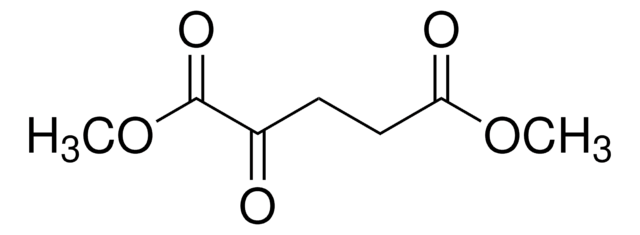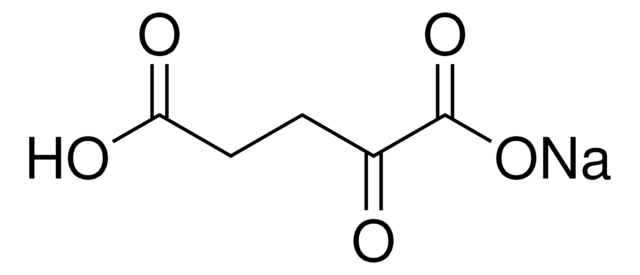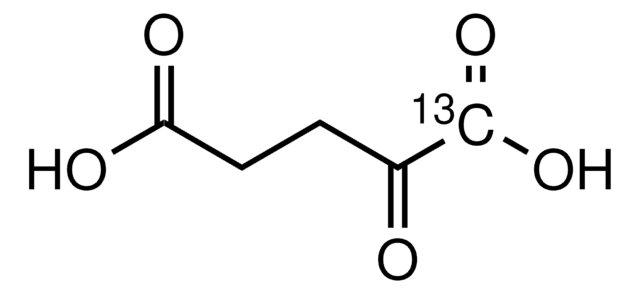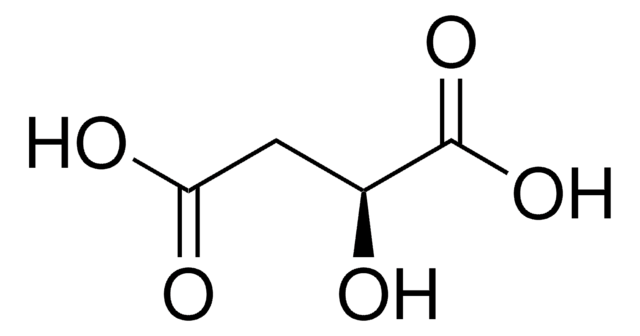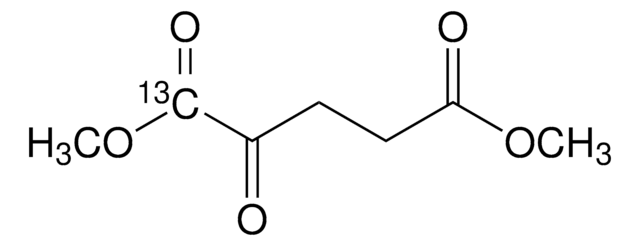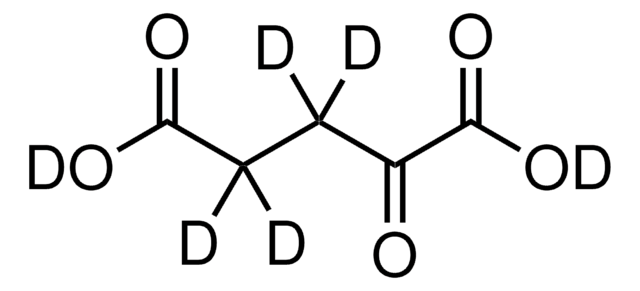K1128
α-Ketoglutaric acid
BioReagent, suitable for cell culture, suitable for insect cell culture
Synonym(s):
2-Oxoglutaric acid, 2-Oxopentanedioic acid
About This Item
Recommended Products
product line
BioReagent
Quality Level
Assay
≥98.5% NaOH basis (titration)
form
powder or crystals
technique(s)
cell culture | insect: suitable
cell culture | mammalian: suitable
solubility
water: 100 mg/mL, clear to slightly hazy, colorless to almost colorless
storage temp.
2-8°C
SMILES string
OC(=O)CCC(=O)C(O)=O
InChI
1S/C5H6O5/c6-3(5(9)10)1-2-4(7)8/h1-2H2,(H,7,8)(H,9,10)
InChI key
KPGXRSRHYNQIFN-UHFFFAOYSA-N
Looking for similar products? Visit Product Comparison Guide
General description
Application
- as a supplement in minimum essential medium α (α-MEM) to culture primary mesenchymal stromal/stem cells (MSCs) to study its effects on age-related osteoporosis
- for chemical treatments to compare the treatment effects of several compounds on lifespan between manual and automated lifespan machine (ALM) platforms
- as a printed chemotaxis ligand to screen chemotaxis receptors with high-throughput technologies and verify the interactions with surface plasmon resonance (SPR)
Biochem/physiol Actions
Signal Word
Danger
Hazard Statements
Precautionary Statements
Hazard Classifications
Eye Dam. 1
Storage Class Code
11 - Combustible Solids
WGK
WGK 3
Flash Point(F)
Not applicable
Flash Point(C)
Not applicable
Personal Protective Equipment
Certificates of Analysis (COA)
Search for Certificates of Analysis (COA) by entering the products Lot/Batch Number. Lot and Batch Numbers can be found on a product’s label following the words ‘Lot’ or ‘Batch’.
Already Own This Product?
Find documentation for the products that you have recently purchased in the Document Library.
Customers Also Viewed
Our team of scientists has experience in all areas of research including Life Science, Material Science, Chemical Synthesis, Chromatography, Analytical and many others.
Contact Technical Service
